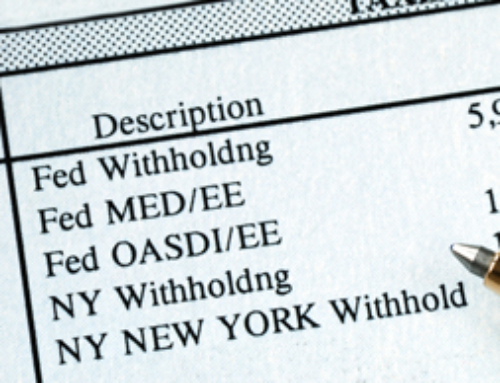 Tax Filing Deadline: Last-Minute Tax Mistakes To Avoid
Tax Filing Deadline: Last-Minute Tax Mistakes To Avoid
You’re sitting there gloating, aren’t you? You filed your tax return ages ago—and already have your refund, right?
Well, some people are just a bit slower, perhaps for good reason. There is one tax benefit you can get only by waiting until the last minute—a final big contribution to certain retirement plans.
Make sure you avoid last-minute tax mistakes that will cost you dearly when the April 18, 2011 (yes, you have until April 18 to file next year) tax filing deadline comes around.
Last-Minute Retirement Plan Payments
Folks whose solo 401(k) accounts were open by December 31, 2009, have until October 15, 2010, to finalize funding the account for 2009. Procrastinators who didn’t set up an account may set up a 2009 SEP-IRA and fund it all the way until October 15. These last-minute funding deadlines apply only if the tax return hasn’t been filed yet.
Why do we care? Because a small-business owner and his or her spouse may each contribute as much as $49,000, depending on the business’s profits. You’ll find more details in IRS Publication 560, Retirement Plans for Small Business.
There’s no reason you can’t start making plans for 2010, too.
Last-Minute Deductions Search
Dig out all those receipts you’ve been saving and stashing everywhere—you know, the ones with potential tax deductions. Where should you look?
- The purses and wallets you used in 2009
- You car—in the slot in the visor, next to the driver’s seat, behind the seats, in the trunk, and in the various pockets and cup holders
- Your children’s backpacks, their schoolbags, or whatever they were carrying last year when you stuck a receipt in there, meaning to retrieve it as soon as you got home but didn’t
- That receipt drawer in the kitchen. Or is it the den? The bathroom? Where the heck is that drawer full of crumpled receipts? Oh yes! The hall closet!
You’re getting the idea. Start digging for all the notes and receipts you can find.
People who use software like Quicken or QuickBooks can enter their receipts into the system helter-skelter. You don’t need to put them in order—the system will do it for you. Just be sure to save the records all in one place.
One note regarding receipts on thermal paper: if the text hasn’t totally disappeared yet, make photocopies of those receipts or scan them before they fade.
Medical, Dental, and Charity
For medical and dental expenses, call your pharmacy, primary physician, dentist, chiropractor, Reiki practitioner, etc., for your 2009 printouts or summary statements. Your insurance carrier can give you a printout of your insurance payments for the year—perhaps even your co-pays?
If you use one of those keychain discount cards at the drugstore, you can probably get a list of medical-related expenses there.
Get hold of your final pay stub for 2009. It may show health insurance premiums you have paid. It might even show other deductible expenses, like union dues.
If you see costs for disability insurance, don’t deduct them. As long as those premiums are not deducted, any benefits you collect will be tax-free to you. Sweet!
When it comes to charitable contributions, you must have the receipts in hand before you file the tax return. If you’re missing receipts for donations of $250 or more, contact the charity and get a replacement right away. In addition to showing the contribution date in 2009, the receipt or letter should be dated 2009. Having the wrong year on the cover letter has cost taxpayers thousands of dollars in lost contributions. The Tax Court has supported IRS on this technicality, alas.
You don’t have much time. But if you gather every document you can find, you may still be able to cut last year’s taxes at the very last minute.
Eva Rosenberg, EA is the publisher of TaxMama.com, where your tax questions are answered. Eva is the author of several books and ebooks, including Small Business Taxes Made Easy. Eva teaches a tax pro course at IRSExams.com.
Read More:
Weird Taxes Affecting You Right Now
Estate Tax Update: How Will the Estate Tax Affect You?
The Nanny Tax: How to Pay Nannies, Babysitters, and Home Help
Tax Repercussions of Divorce
Tax Consequences of Unemployment






